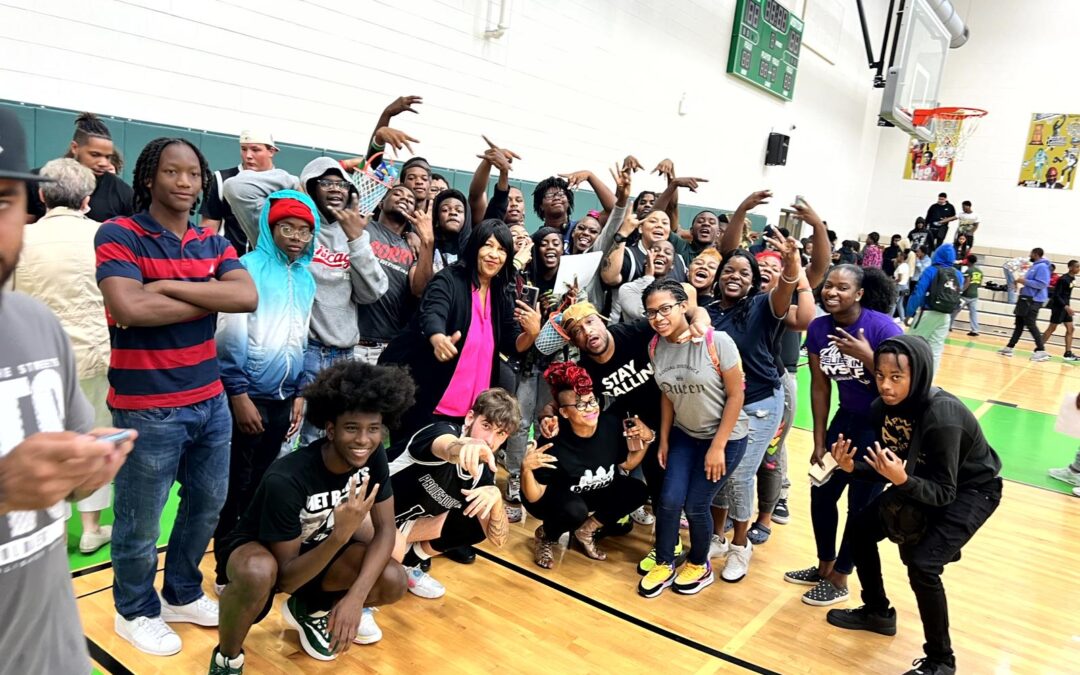For many young people, having a safe space to share their thoughts and emotions can be life-changing. At Society of Royals, we understand that peer support is an essential component of mental health. That’s why we’ve established peer-led support groups in our chapters across Texas, creating judgment-free zones where students can open up, connect with one another, and gain strength from shared experiences.
The Power of Peer-Led Support
The peer support groups at Society of Royals are unique in that they are student-led. Rather than having a counselor or adult lead the discussion, the students take the reins. This peer-led approach fosters a sense of community and trust that allows participants to feel more comfortable sharing their feelings and experiences.
Many students find it easier to talk to their peers, who are likely going through similar challenges. Whether it’s navigating academic pressures, dealing with family issues, or managing mental health struggles, students feel understood and supported by others who truly “get it.”
At Texas A&M University and the University of Houston, where the academic environment can be intense and overwhelming, these peer support groups have proven to be a valuable resource. Students at these campuses describe the groups as a safe haven where they can talk openly about their mental health without fear of judgment.
Emotional Support in a Judgment-Free Zone
One of the most important aspects of our peer support groups is the creation of a judgment-free zone. Many young people fear that their struggles will be dismissed or invalidated if they share them with others. At Society of Royals, we strive to change that by building an inclusive and empathetic culture.
The peer support groups allow students to express their emotions freely. Whether they’re sharing the pain of losing a loved one, the stress of applying to college, or the feelings of isolation that come with depression, students know that they will be met with kindness and understanding.
At Texas A&M, for example, a student leader shared how the group helped them during a particularly rough time. “I was dealing with a lot of anxiety and felt like no one understood what I was going through. When I joined the peer group, I realized I wasn’t alone. Hearing others share similar experiences made me feel seen and supported.”
Leadership and Empowerment Through Peer Support
In addition to providing emotional support, these groups offer students a chance to develop leadership skills. At Society of Royals, we believe in empowering students to take charge of their own mental health advocacy. By leading peer support groups, students develop communication, empathy, and conflict resolution skills that will serve them throughout their lives.
At the University of Houston, student leaders have organized mental health awareness events and workshops as part of their peer group activities. These events not only raise awareness but also provide participants with valuable leadership experience. It’s a cycle of empowerment—students gain confidence through leading, and in turn, they inspire others to take initiative as well.
Impacting Campus Culture
The peer support groups are more than just a place to share—they are transforming the culture of mental health on campuses across Texas. By normalizing conversations about mental health, these groups are breaking down stigma and encouraging more students to seek help when they need it.
At both Texas A&M and UH, students have reported feeling more comfortable discussing mental health in public forums and with their professors after joining the peer support groups. This shift in culture is a testament to the power of peer-led initiatives in fostering understanding and acceptance.




